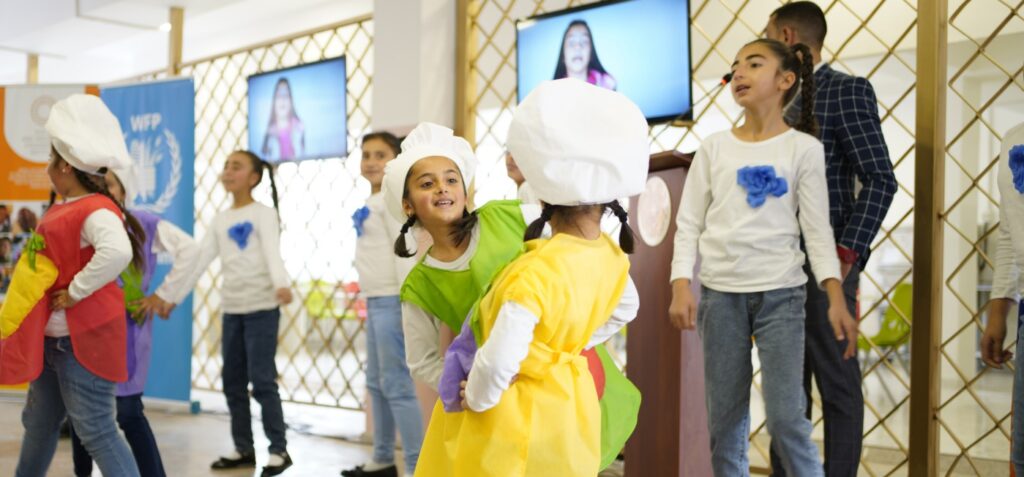The United Nations World Food Programme (WFP) handed over this week the management of the school feeding programme in Armenia to the government. This milestone concludes WFP’s gradual transfer of the program to the Government of Armenia. Since 2010, WFP has been implementing the school feeding program in Armenia, providing hot and nutritious meals to over 100,000 schoolchildren in ten provinces, excluding the capital city of Yerevan.
The Minister of Education, Science, Culture, and Sports of Armenia, Zhanna Andreasyan, emphasized the significance of completing the full nationalization of the programme as planned. “Since January 2023, more than 100,000 children in grades 1 to 4 across the ten provinces of the Republic of Armenia have been receiving food funded by the state budget. We express our intention to expand the programme to include schools in the capital city of Yerevan, potentially benefiting an additional 50,000 children,” she said.
While the school feeding program transitions to government management, WFP remains dedicated to providing technical support and resources to enhance the skills and capacities of national institutions, schools, communities, and other stakeholders involved in school feeding.
In 2017, WFP began a gradual transition of its school feeding programme to the Government of Armenia. This final step marks a significant milestone in the strategic partnership among the Government of the Republic of Armenia, the School Feeding and Child Welfare Agency (SFCWA), the Russian Federation with the Social and Industrial Food Service Institute (SIFI), and the UN World Food Programme (WFP) and its technical partners.
“The school feeding programme has evolved into a vital human capital development platform for more than a decade,” said WFP Representative and Country Director in Armenia Nanna Skau. “School meals play a pivotal role in enhancing the quality of education and fostering healthy lifestyles among schoolchildren.”
Skau also highlighted the positive impact of practices like circular economy, green energy adoption, and the establishment of school orchards and greenhouses in promoting healthy eating habits among children. “Many of them are now sharing their knowledge and teaching their parents how to prepare healthy meals and breakfasts at home,” she added.
The Ambassador Extraordinary and Plenipotentiary of the Russian Federation to the Republic of Armenia, Sergey Kopirkin, highlighted that the Russian Federation’s support over the years extended beyond financial assistance.
“The partnership encompassed technical guidance, methodological support, and personnel training. Russia will continue to support the enhancement of this crucial project, thanks to the strong cooperation between the two countries,” he added.
Source : Reliefweb


